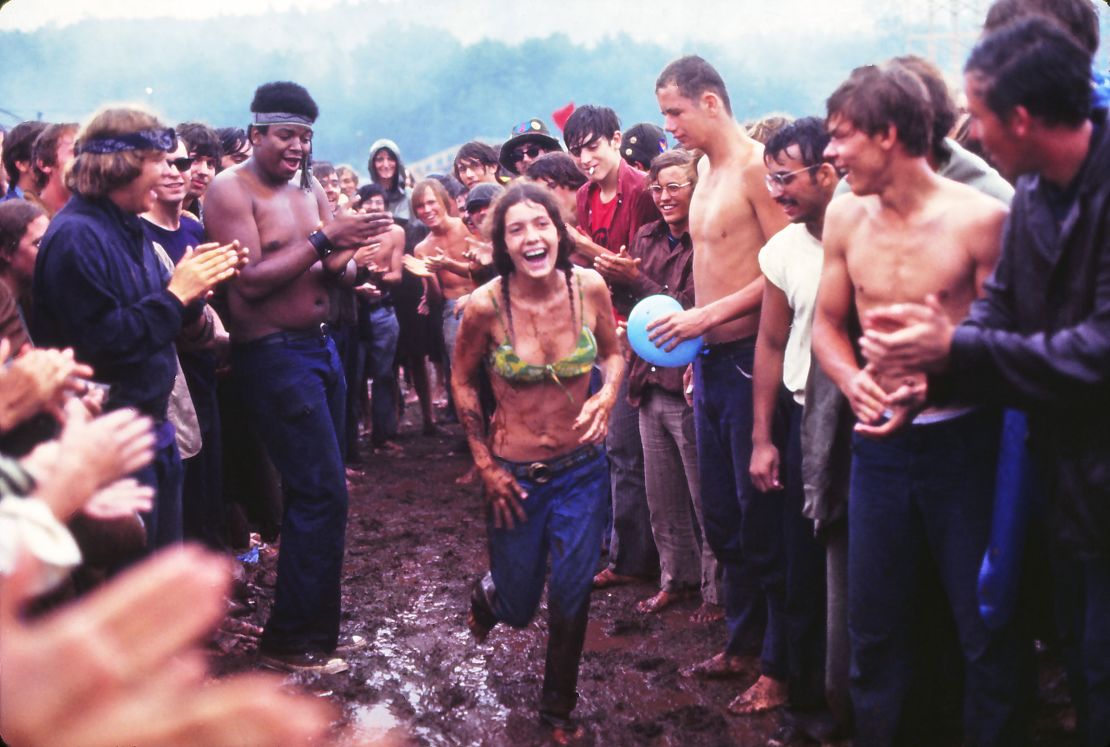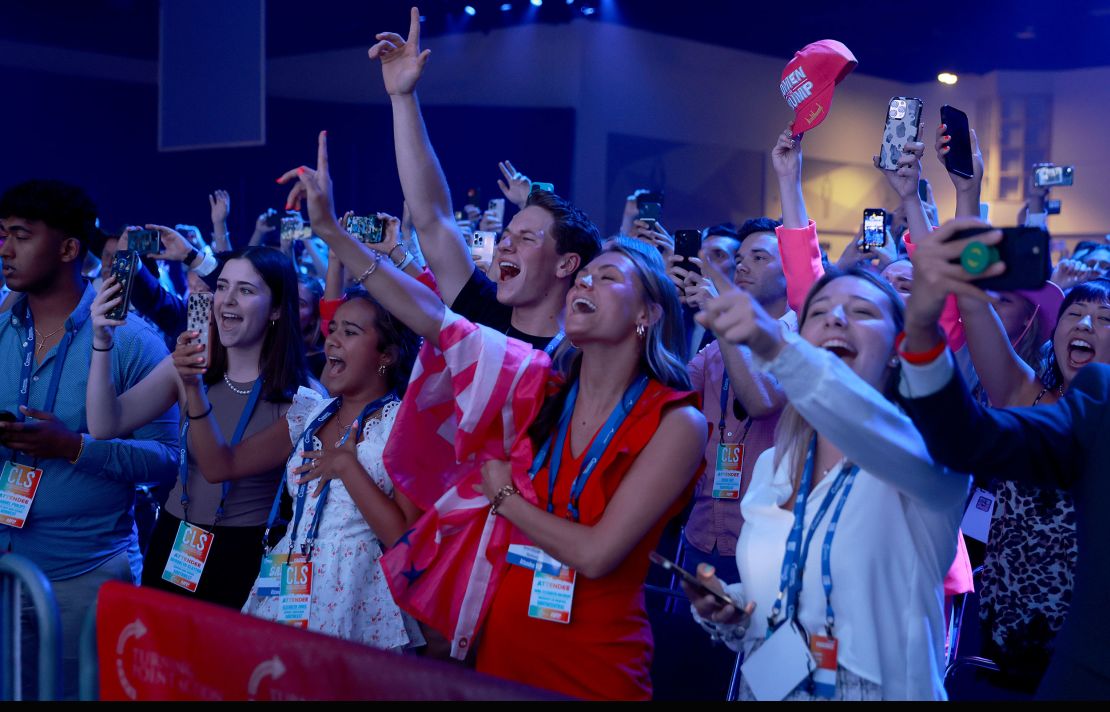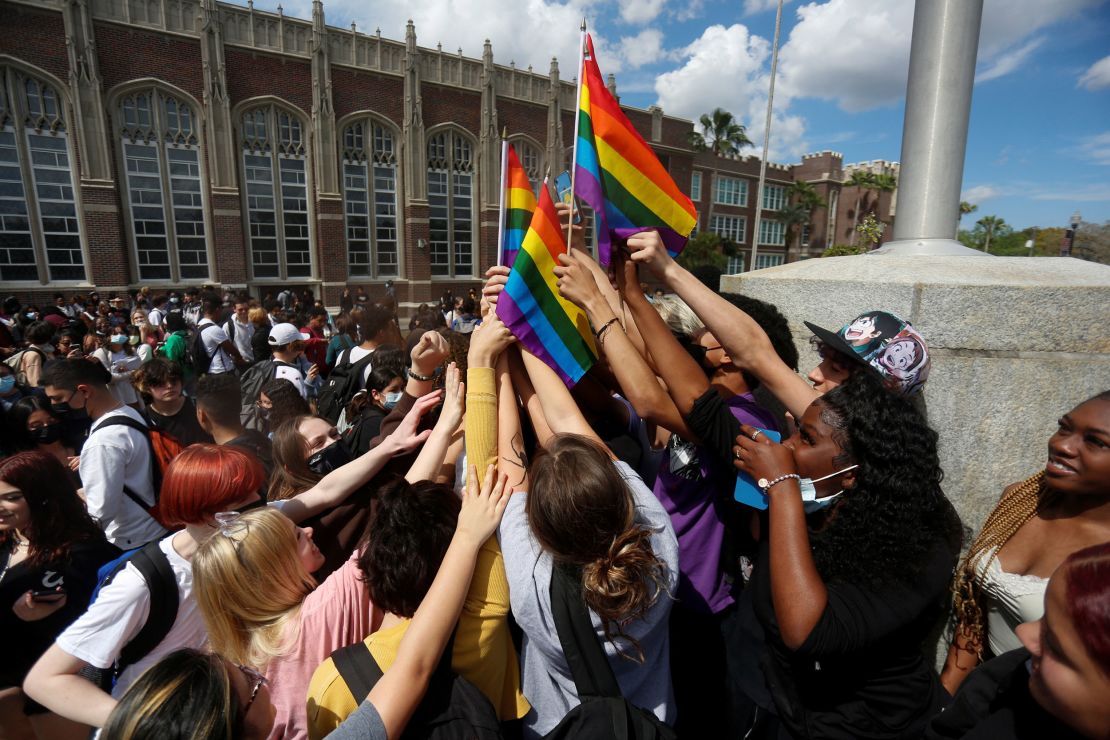There’s more than a 60-year age gap between the oldest Baby Boomer and the youngest member of Gen Z. And for years we’ve heard how different these generations can be, from how they spend their money to how they work to how they use emojis.
We’ve seen “OK Boomer” trend on TikTok as Gen Z criticized their elders, and heard Boomers retort that younger generations should “stop whining.”
But Baby Boomers and Gen Z have something in common that’s often overlooked: Bias is shaping the way we talk about them, allowing stereotypes and myths to drown out facts and reality.
It’s an important point the president of the Pew Research Center made in a recent post. And it’s worth unpacking, because it has big implications for how we can better understand huge swaths of the US population – and the country’s political future.
As Pew President Michael Dimock put it, a common misconception about Baby Boomers’ past serves as a reminder of a key question we should be asking as we talk about Gen Z today.
What many get wrong about Boomers’ history
Student protests of the Vietnam War are a common reference point in contemporary conversations about Baby Boomers, the generation born between 1946 and 1964.
But in his recent post about Pew’s new approach to generational research, Dimock says this anti-war image is an example of an “upper-class bias” that often surfaces when we generalize about generations.
“Popular history recalls that Baby Boomers in the 1960s and ’70s were deeply opposed to the Vietnam War. This notion is based on attention-grabbing protests on college campuses and at political events,” Dimock writes. “Many high-quality surveys at the time showed that younger Americans – most of whom were not attending college – were more supportive of the war than older generations who had lived through previous conflicts.”
Opinion of the war, both nationally and on college campuses, shifted over time. By 1969, a Gallup poll found that 50% of college students supported the war, but there were notable regional differences. Criticism of President Nixon’s Vietnam policies were more prevalent on East Coast campuses. But in other parts of the US, students were significantly more supportive.
Cultural critic Louis Menand has pointed out that another important detail often gets overlooked when talking about this chapter in Baby Boomers’ past.
Many were children during some of the 1960s most notable cultural and political shifts.
“At the time of Woodstock, in 1969, more than half the baby-boom generation was under thirteen,” Menand wrote in a New Yorker story.
Menand, a Baby Boomer himself, says his generation is incorrectly credited with liberal initiatives that were really driven by people from earlier generations.
“All the things that we think about as typical of the ‘60s, activism, liberation movements, none of that stuff really is attributable to my generation,” Menand told CNN in a recent interview. “We were passive. We were consumers. We weren’t producers.”

And those who did attend the famed 1969 concert, he says, were only a sliver of the population. Most young people in the 1960s, Menand says, “did not practice free love, take drugs, or protest the war in Vietnam.”
In other words, one of the most well-known images tied to Baby Boomers in their youth wasn’t the reality lived by most members of that generation.
It’s a lesson that applies to other generations, too.
As Dimock points out after describing this widely believed Baby Boomer myth, “Readers today should similarly question whether stereotypes of Gen Z might be skewed toward the experiences of the upper middle class.”
A major conversation right now is misunderstanding much of Gen Z’s reality
For Gen Z, one of the starkest examples of upper-class bias often bubbles up in media reports that try to predict workplace trends, according to Kim Parker, Pew’s director of social trends research.
“A lot of the discussion about Gen Z and work leaves out such a big swath of young people and their experiences,” Parker says.
The generation, generally described as those born between 1997 and 2012, is often tied to conversations about remote work. But that’s missing a key point, Parker says.
“Most workers, and particularly young workers, don’t even have jobs that can be done remotely,” she says.
A Pew study in late 2020 found that remote work was an option for less than a third of workers aged 18-29, an age range that would include members of Gen Z and Millennials, another generation that’s often subject to stereotyping.
Members of those generations are more heavily concentrated in service-sector, hospitality and retail jobs, Parker says.
And Gen Z may not be as ‘woke’ as you think
Could our understanding of Gen Z’s politics – frequently described as liberal – also be missing part of the picture?
Psychologist Jean M. Twenge thinks so, though she says class bias may not have as much to do with it.
“There are examples out there based on anecdotes, or only looking at certain regions, or people trying to extrapolate based on their kids’ and kids’ friends,” she says.
Even as many members of Gen Z do have more liberal viewpoints, there’s still a sizeable conservative contingent, says Twenge, author of “Generations: The Real Differences between Gen Z, Millennials, Gen X, Boomers and Silents — and What They Mean for America’s Future.”
“With young people in general and Gen Z in particular earning a reputation as liberals, it’s especially surprising how many politically are far right,” she writes in her book.
Twenge, a professor at San Diego State University, cites studies of high school seniors and college freshmen and observes a common thread: “There is a groundswell of support for the extremes of political belief.”
“More high school seniors now identify as ‘very conservative’ (as opposed to merely ‘conservative’) – surprisingly twice as many Gen Zers identify as very conservative as Gen X high school seniors in the Reagan era late 1980s,” she writes. “The number identifying as ‘very liberal’ or radical has also increased, but more moderately.”
Menand, an English professor at Harvard, says that when talking with his own students he regularly sees how stereotypes about Gen Z’s politics don’t match up with reality.
“I have more students that complain about wokeness than are woke,” he says.
Some findings about Gen Z after recent polling have painted a more complicated picture of voters from that generation.
“We were surprised,” says Whitney Ross Manzo, an associate professor of political science at Meredith College and assistant director of its Meredith Poll.
She and coauthor David McLennan summarized some of their results in an opinion piece for The Hill last year, titled “Why Generation Z might not be as ‘woke’ as most think.”
The Meredith Poll, which surveys North Carolina residents, did find that Gen Z voters had more liberal views on issues like abortion rights, LGBTQ+ protections and legalization of marijuana. But the poll also recently found that over half of Gen Z respondents felt it was more important to have a strong leader than to protect democracy, and two-thirds agreed that force should be used if the American way of life was disappearing.
“They were embracing authoritarianism more than we would have guessed,” Manzo says.

“In poll after poll, we have found enormous diversity among Gen Z and their views,” she says.
And leaders from either party preparing for America’s political future, she says, ignore this at their peril.
“We don’t think it’s going to be as clear-cut as a lot of pundits have made it seem like it’s going to be,” she says.
We hear a lot about Baby Boomers vs. Gen Z, but there’s a bigger debate happening
When it comes to Gen Z’s politics, experts say another point is often overstated by market researchers, consultants and journalists.
The more conservative Baby Boomers and the more liberal Gen Z are portrayed like opposing forces in generation wars rather than people with shared goals living in the same society.
“It feels like we’re incredibly tense or divided between the generations,” says Bobby Duffy, a professor of public policy and director of the Policy Institute at King’s College London. That, Duffy says, is a tale as old as time.
“The issues change, but there’s always a difference between the attitudes of young and old,” says Duffy, author of “The Generation Myth: Why When You’re Born Matters Less Than You Think.”
That doesn’t mean there’s no common ground. Within any generation, there’s a wide variety of opinions and life experiences that can easily get lost when we talk about everyone born in certain years as a monolithic group.

That’s why experts have been weighing a larger question: Should we label generations at all?
Pew had been planning a large research project on Gen Z, but recently halted that effort to reassess its approach to generational research in the face of criticism from a group of social scientists who’ve been arguing that generation labels are harmful and unscientific.
That’s significant because Pew is known as one of the most authoritative sources on generations, including its oft-cited definitions of when different generations begin and end.
Now Pew is changing its approach.
Going forward, Pew says it will only analyze generations when it has enough data to compare different generations in similar stages of life, to make sure it’s highlighting generational change rather than differences based on age that can change over time. The organization also says it’s trying to avoid perpetuating stereotypes and will no longer default to using standard generational labels.
“Our recommendation is for readers to bring a healthy dose of skepticism to the generational discussions they see,” Dimock says.
That includes reports about generations, he says, that “assume or exaggerate intergenerational divides that may actually be quite small.”
In the end, when we look at the facts, we may find that Baby Boomers and Gen Z have even more in common than how misunderstood they often are.
Correction: This story has been updated to correct the age difference between the oldest Baby Boomer and the youngest member of Gen Z. There is more than a 60-year gap.




